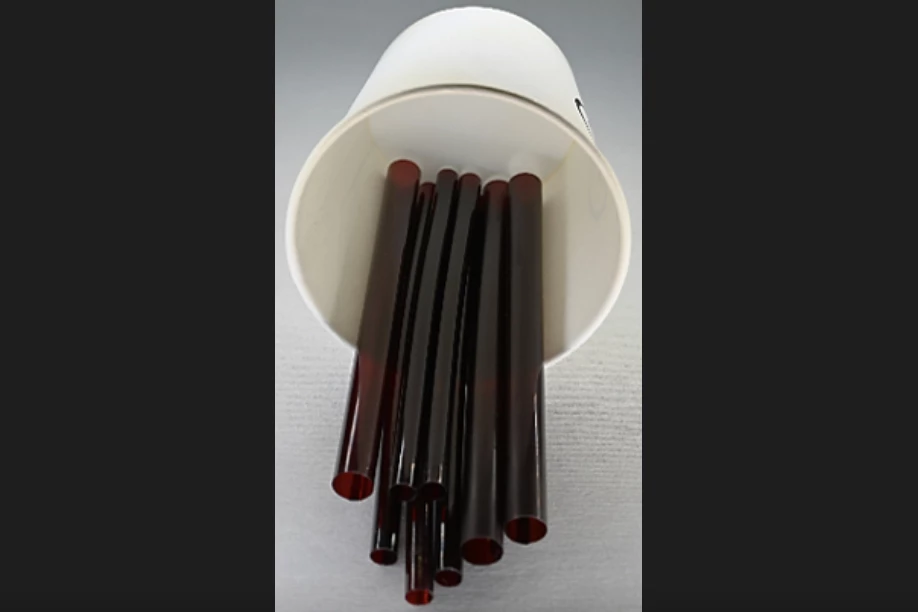Although disposable plastic straws are being phased out in some countries, their "greener" replacements have a few shortcomings of their own. Well, scientists have now developed bioplastic straws that don't get soggy, but do biodegrade when discarded.
While we have seen other experimental eco-friendly straws, some (such as those made of paper) break down when wet, while others (such as those made of sugar cane) require complex production processes. Non-disposable multi-use straws are certainly one alternative, although not everyone is always going to have such a straw on them whenever they grab a drink while out and about.
With these limitations in mind, scientists from South Korea's Inha University looked to lignin, a type of organic polymer which makes up much of the support tissue in plants – including trees.
It's also a byproduct of the pulp and paper industry, and has previously been put forward for use in applications such as cheaper batteries, waste-derived carbon fiber and stronger concrete.
The researchers combined lignin with either potato starch or plant-derived polyvinyl alcohol (PVA), then added citric acid to that mixture. They then spread the slurry into a thin sheet, rolled that sheet into a cylinder and allowed it to dry, then heated the cylinder in a vacuum at a temperature of 180 ºC (356 ºF).

The resulting bioplastic self-sealed along the seam, forming a long, skinny tube that was cut into individual flexible straws. Those straws didn't become soggy when immersed in liquid, and were in fact even stronger than conventional polypropylene straws. That said, while the traditional straws remained unchanged after being left outside and exposed to the elements for two months, the lignin straws had significantly biodegraded.
A paper on the study – which was led by Dickens Agumba, Duc Hoa Pham and Jaehwan Kim – was recently published in the journal ACS Omega.
Source: American Chemical Society




